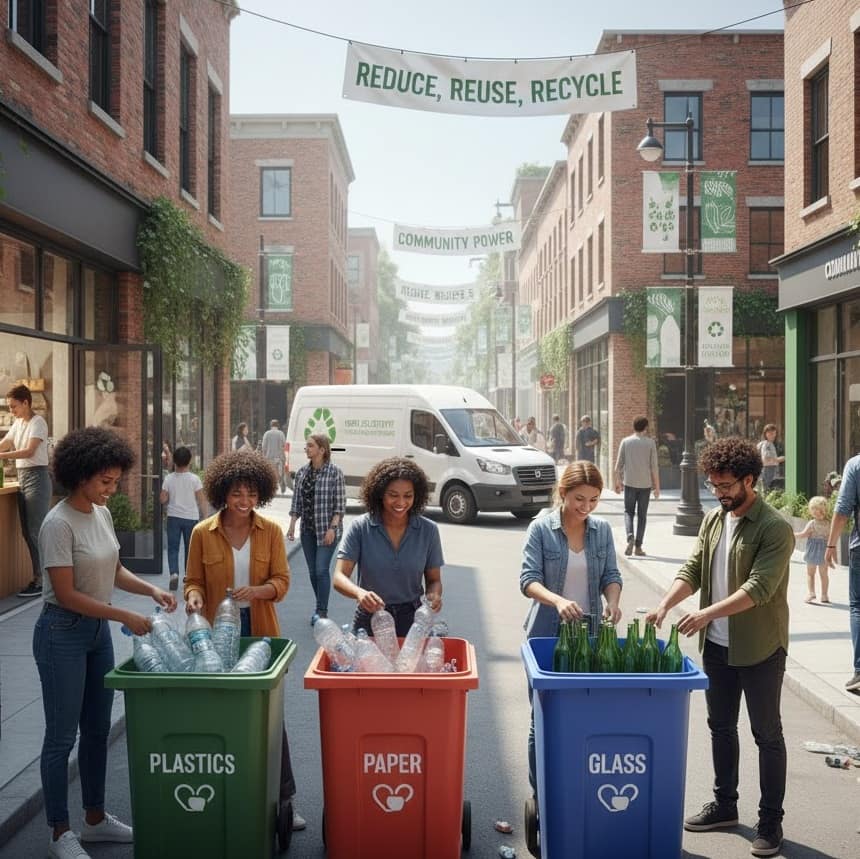A grassroots business network has become one of the most influential drivers of community-based initiatives, especially when tackling environmental challenges that require collective effort. These networks bring together small enterprises, volunteers, and local advocates who share a unified mission, allowing them to pool resources and knowledge to solve issues that extend beyond individual capacities.
When there’s an active business network within a community, it creates a cycle of shared responsibility where everyone can participate in planning, execution, and continued development of meaningful programs. This naturally leads into deeper conversations about how such a network can directly support recycling plastic wastes and transform local habits in sustainable ways.
How a Grassroots Business Network Supports Recycling Plastic Wastes?
Recycling plastic wastes depends heavily on participation and visibility, which is where a strong network becomes essential. These networks can organize local sorting hubs, educate residents about proper waste segregation, and create incentives for people to return recyclable materials on a regular basis.
Many communities struggle with the early stages of recycling because they lack both structure and encouragement. But this can be solved by offering leadership and consistent guidance.
Over time, these coordinated efforts help develop a culture where recycling becomes a natural daily habit rather than an occasional task that people overlook. This shift is crucial because recycling plastic wastes requires long-term engagement to reduce pollution levels meaningfully.
Building Sustainable Systems through Local Action

When local groups unite to improve recycling plastic wastes, the impact becomes far more visible and long-lasting. Small businesses can collaborate to sponsor collection bins, repurpose plastics into usable products, or even partner with recycling facilities that need steady supply streams.
Residents begin to notice the direct benefits of their participation, such as cleaner streets and reduced landfill overflow, which reinforces their motivation to stay involved. Businesses can then appoint leaders who can create accountability because members can track progress, adjust goals, and introduce new strategies as community needs evolve over time. These micro-systems eventually build into larger frameworks that influence how entire neighborhoods manage their waste and maintain environmental responsibility.
Encouraging Innovation within Community Recycling Efforts
One of the most powerful outcomes of strengthening recycling initiatives is the innovation that emerges from community collaboration. When plastic waste becomes a shared concern, people begin searching for creative ways to transform discarded materials into something useful, marketable, or educational.
Schools may launch eco-projects, entrepreneurs may develop new products from recycled plastics, and local artists may lead creative campaigns using repurposed materials. The consistent presence of local business groups encourages this creativity because it provides support systems where ideas can be tested, refined, and shared among different groups. This innovation keeps the momentum strong and ensures that recycling plastic wastes remains an active, evolving movement.
Expanding Community Reach and Long-Term Environmental Impact
As the network grows, its influence extends beyond basic recycling practices. It begins shaping environmental values, encouraging more people to participate in eco-friendly programs, and inspiring neighboring areas to adopt similar approaches. The ripple effect allows communities to multiply the results of their recycling efforts without relying solely on large organizations or government-led campaigns.
When more individuals understand how recycling plastic wastes affects both local and global ecosystems, they become more committed to long-term change.

